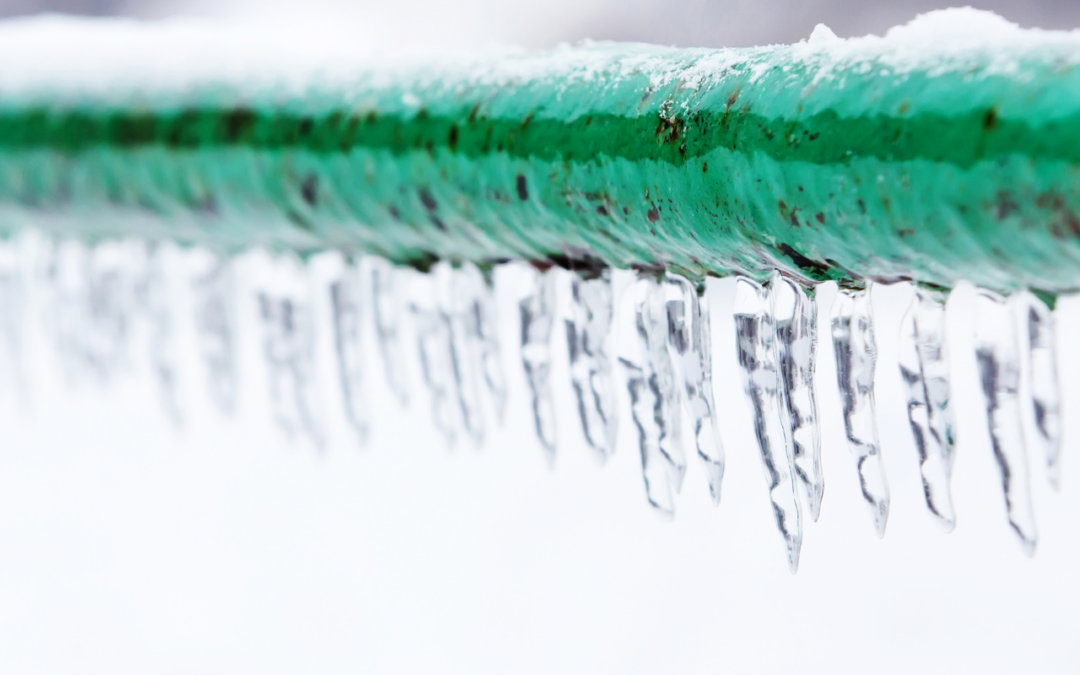As winter approaches, protecting your home becomes a top priority, and one crucial aspect is safeguarding your pipes from freezing. Frozen pipes can lead to costly damage and inconvenient plumbing issues.
Prevent the Freeze
While preventing your pipes from freezing might seem expensive, it pales in comparison to the costs associated with repairing frozen or burst pipes.
1. Insulate Exposed Pipes:
Identify pipes in unheated or uninsulated areas, such as basements, attics, and crawl spaces. Use pipe insulation sleeves or wraps to provide a protective barrier, minimizing the risk of freezing.
2. Seal Cracks and Gaps:
Inspect your home for any gaps or cracks that could let in cold air. Use caulk or insulation to seal these openings, preventing frigid air from reaching your pipes and causing them to freeze.
3. Disconnect and Drain Outdoor Hoses:
Disconnect and drain water from outdoor hoses, and store them indoors. Shut off outdoor water valves and insulate them to protect against freezing temperatures. This prevents ice from forming and damaging the hose bib.
4. Keep Interior Doors Open:
Ensure proper circulation of warm air within your home by keeping interior doors open. This helps maintain a more consistent temperature throughout, reducing the risk of cold spots where pipes are vulnerable to freezing.
5. Let Faucets Drip in Extreme Cold:
On exceptionally cold nights, allow faucets to drip slightly. This continuous flow can prevent water from standing still in the pipes, reducing the likelihood of freezing. Focus on faucets located along exterior walls.
6. Apply Heating Tape:
For pipes at greater risk of freezing, consider using heating tape. This electrically-powered tape can be wrapped around pipes and controlled by a thermostat, providing a consistent heat source to prevent freezing.
7. Maintain a Warm Temperature:
Keep your home adequately heated, even when you’re away. Set the thermostat to a minimum of 55° F (12° C) to ensure that interior temperatures remain above freezing, protecting your pipes from potential damage.
8. Close Garage Doors:
If your plumbing runs through the garage, keep garage doors closed. This helps maintain a warmer temperature in the garage and protect the pipes from freezing.
9. Use Space Heaters Wisely:
If you have exposed pipes in specific areas, strategically use space heaters to provide additional warmth. Ensure proper ventilation and follow safety guidelines to prevent fire hazards.
10. Plan for Extended Absences:
If you plan to be away during winter, take extra precautions. Shut off the main water supply and drain the system. Ask a trusted neighbor or hire a professional to check on your home periodically.
What if my pipes burst?
If your pipes burst, immediate action is crucial to mitigate damage. Fortunately, the majority of homeowners’ insurance policies cover water damage. It’s important to promptly get in touch with your agent or insurance company to initiate the claims process. Inquire about their requirements – whether they need photo documentation or an on-site assessment with a field representative. Before beginning any cleanup or repairs, ensure your claim has been correctly filed to facilitate a smoother resolution of the situation.
By taking these preventive measures, you can shield your pipes from freezing temperatures and potential damage. Winterizing your plumbing is a proactive step that not only saves you from inconvenient and costly repairs, but also ensures a worry-free winter season.


Recent Comments